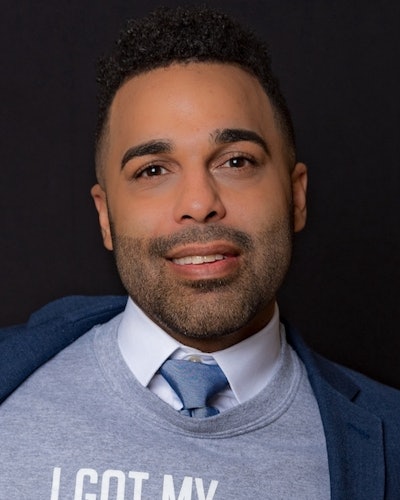No single group of institutions is more responsible for the economic, cultural and legal progress of our nation’s Black families than historically Black colleges and universities (HBCUs).
Their history of contributing, of over-delivering while being systematically under-resourced, of making remarkable progress to advance equity while they, themselves, had to confront real inequities is astounding. And a legacy of which we can all be proud.
They collectively have been able to deliver these miraculous outcomes because of—not in spite of—their ability to offer students safe spaces for Black joy and expression, taking special care to honor our rituals and traditions while celebrating and redefining Blackness.  Edward Smith-Lewis
Edward Smith-Lewis
Now, as HBCUs look ahead, it’s time for them to prepare to be as transformative for future generations as they have been for past generations. But we cannot—we must not—revert this exceptional experience to the typical for the sake of online convenience.
We at the Institute for Capacity Building are honored to be playing a part in this discussion about what the future of HBCUs can look like, and specifically, how technology can play a role in delivering a true HBCU experience virtually and remotely.
It’s an initiative we call “HBCUv,” and, put most simply, it is a vision for creating not just a shared e-learning platform for Black colleges and universities, but a true connected community for learning.
The charge of HBCUv is to embrace emerging technologies in ways that advance our core values and the core value we offer our students and our communities. To translate Black pedagogy into virtual spaces. To continue honoring the full breadth of our racial identities and histories. To elevate and support our exceptional educators and researchers, and their critically important critical lenses.
Clearly, our needs are different from other institutions of higher learning. We can’t use off-the-shelf solutions if we want to preserve our bespoke culture. We must find a path that allows our institutions to retain their unique identities and traditions, only more so.
One thing HBCUv is not: just another thought exercise.
From the beginning, our vision was to ensure this won’t be a case of HBCUs being forced to, once again, do more with less. We now have real resources in place to realize the vision we—collectively—develop for the future of online education at HBCUs. At scale. On an aggressive, but achievable timeline.
In fact, we’re looking at this as very much an opportunity for the HBCU community. Not just in terms of expanding on our academic mission, but also as an important part of promoting institutional sustainability into the future.
Fully realized, HBCUv will be an exceptional asset not just for the HBCU community, but for our individual institutions as well. Far from a loss leader, we see it as a vision for investing in Black communities over the long term, creating generations of life-long learners and transforming education as whole, not just Black education.
The HBCUv project started with the simple idea that we could harness the power of Black joy, magnify it in virtual spaces in ways we can barely imagine today, and use this to leverage our ongoing drive for ever-more excellence in higher education.
In the coming months, we’ll be ready to show you what we’ve been working on. And we expect you’ll find it to be as exciting as we do.
Edward Smith-Lewis is vice president, strategic partnerships and institutional programs, UNCF (United Negro College Fund)















